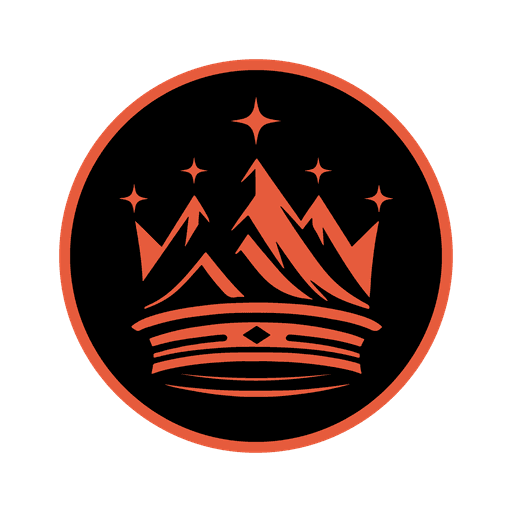Blog
-
Mastering Marketing Operations in RevOps: A Strategic Guide
Mastering Marketing Operations in RevOps: A Strategic Guide
Jul 10, 2024
Foundational Concepts
Mastering Marketing Operations in RevOps: A Strategic Guide
Introduction
In the fiercely competitive landscape of industrial engineering manufacturing, mastering the art of marketing operations can be a game-changer. As businesses strive to optimize revenue streams and drive sustainable growth, the role of marketing operations within Revenue Operations (RevOps) becomes increasingly crucial. This blog aims to provide an in-depth exploration of the essential components of marketing operations, offering valuable insights and actionable strategies for business leaders in the industrial engineering sector. By the end of this read, you'll have a comprehensive understanding of how to leverage marketing operations to enhance your business's performance and achieve sustained, long-term success.
Marketing operations encompass a wide range of activities and processes designed to support and enhance marketing strategies and objectives. From digital marketing and technical content creation to digital experiences, marketing technology, and account-based marketing, each component plays a vital role in driving revenue and growth. Let's delve into each of these primary sections to understand their significance and impact on demand generation for industrial engineering businesses.
Defining Marketing Operations
What is Marketing Operations?
Marketing operations encompass the end-to-end processes, systems, and technologies that support the planning, execution, and measurement of marketing strategies. Within the RevOps framework, marketing operations play a critical role in aligning marketing efforts with overall business goals, ensuring that marketing activities drive measurable revenue growth and operational efficiency. This includes everything from campaign management and lead nurturing to performance analytics and technology integration.
Marketing Operations vs. Traditional Marketing
While traditional marketing focuses primarily on creative development and audience engagement, marketing operations emphasize the infrastructure and processes that enable these activities. Marketing operations involve a more data-driven approach, leveraging analytics and technology to optimize marketing efforts and ensure alignment with sales and customer success. This synergy between traditional marketing and marketing operations is essential for creating cohesive, effective marketing strategies that drive tangible business results.
Core Functions of Marketing Operations
Digital Marketing
Digital marketing serves as the foundation of modern marketing operations, offering a myriad of opportunities to connect with potential customers and drive engagement. In the industrial engineering sector, where decision-making often involves complex products and long sales cycles, digital marketing strategies must be both targeted and sophisticated. Search Engine Marketing (SEM) and Search Engine Optimization (SEO) are critical for improving online visibility and ensuring that your business appears at the top of search results when potential customers are looking for solutions. By leveraging SEM and SEO, you can attract high-quality traffic to your website and generate valuable leads.
Paid social media campaigns further amplify your reach by targeting specific demographics and industries. Platforms like LinkedIn, with its focus on professionals and B2B networking, are particularly effective for industrial engineering businesses. Content syndication helps distribute your valuable content across various platforms, increasing its reach and driving traffic back to your site. Meanwhile, email marketing, along with WhatsApp, SMS, and MMS marketing, provides direct channels to engage with prospects and customers. Video marketing, known for its ability to convey complex information in an engaging format, can be particularly effective in showcasing your products and services. Lastly, display advertising and retargeting ensure that your brand remains top-of-mind for potential customers, guiding them through the buying journey.
Technical Content & Creatives
Creating high-quality, relevant content is essential for engaging with customers at all stages of their lifecycle. In the industrial engineering sector, where products and solutions can be highly technical, the importance of technical content and creatives cannot be overstated. Content tailored to different stages of the customer journey—from awareness and consideration to decision and retention—ensures that your messaging resonates with your audience's specific needs and challenges. This includes everything from whitepapers and case studies to blog posts and instructional videos, each designed to educate and inform potential customers.
UI and UX design play a crucial role in enhancing the overall user experience, making it easy for visitors to navigate your website and find the information they need. Effective product marketing strategies highlight the unique features and benefits of your offerings, while performance marketing leverages data-driven insights to optimize campaigns and achieve specific business goals. Brand awareness campaigns build and maintain a strong presence in the market, while lead nurturing strategies engage prospects through personalized content and interactions. Additionally, sales enablement content provides your sales team with the resources they need to close deals, from product brochures and presentations to competitive analysis and objection handling guides.
Digital Experience (XP)
The digital experience (XP) encompasses the entire journey that customers take when interacting with your brand online. In the industrial engineering sector, where the decision-making process is often complex and involves multiple stakeholders, providing a seamless and immersive digital experience is key to driving engagement and conversions. Immersive technology solutions, such as augmented reality (AR) and virtual reality (VR), offer innovative ways to showcase your products and solutions, allowing potential customers to explore them in a virtual environment.
User-centric services focus on understanding and addressing the needs and preferences of your audience, ensuring that every interaction is meaningful and valuable. Empowering sales and HR teams with the right tools and resources enhances internal collaboration and efficiency, while training and development programs ensure that your employees are equipped with the latest skills and knowledge. Interactive marketing campaigns, such as gamified experiences and virtual events, engage customers in a dynamic and memorable way. Educational VR experiences, in particular, can be highly effective in demonstrating complex products and processes, providing an in-depth understanding that static content simply cannot match.
Marketing Technology
Marketing technology, or MarTech, is the backbone of modern marketing operations, providing the tools and platforms needed to execute and optimize campaigns. In the industrial engineering sector, where data-driven decision-making is crucial, leveraging advanced marketing technology can significantly enhance your efforts. Lead generation and nurturing platforms help identify and engage potential customers, guiding them through the sales funnel with personalized content and interactions. Customer re-engagement strategies, powered by MarTech, enable you to reconnect with inactive customers, driving renewed interest and potential sales.
Up-selling and cross-selling techniques leverage data insights to identify opportunities within your existing customer base, increasing revenue without the need for new customer acquisition. Advanced personalization tools allow you to tailor your messaging and offers to individual customer needs, enhancing the overall experience and driving higher conversion rates. Platform expertise, including Customer Relationship Management (CRM), Marketing Automation Platforms (MAP), Master Data Management (MDM), Digital Asset Management (DAM), and Product Information Management (PIM), ensures that your marketing operations are efficient, scalable, and aligned with your overall business strategy.
Account-Based Marketing (ABM)
Account-Based Marketing (ABM) is a highly targeted approach that focuses on engaging specific high-value accounts, making it particularly effective for industrial engineering businesses dealing with complex B2B sales cycles. ABM strategies involve close collaboration between marketing and sales teams to identify and target key accounts, tailoring campaigns to address their unique needs and challenges. This targeted engagement ensures that your efforts are focused on the accounts with the highest potential for revenue and growth.
Utilizing advanced ABM platforms, you can create hyper-focused marketing campaigns that integrate advertising, content, and engagement tactics. These campaigns are designed to nurture key accounts through personalized interactions, driving adoption, upsell, and cross-sell opportunities. Additionally, ABM campaigns play a crucial role in customer retention and churn reduction, ensuring that your most valuable accounts remain engaged and satisfied. Reactivation campaigns target dormant accounts, reigniting interest and driving renewed engagement. By leveraging ABM, you can create a cohesive and impactful marketing strategy that aligns with your overall business objectives, driving significant results and long-term success.
Real-World Applications and Case Studies
Industry-Specific Case Studies
In the industrial engineering sector, successful implementations of marketing operations have led to impressive results. For instance, a leading engineering firm utilized account-based marketing to target high-value accounts, resulting in a 30% increase in lead conversions. By integrating advanced marketing technology and focusing on personalized content, they were able to streamline their marketing processes and significantly improve their ROI. Another example involves a manufacturing company that adopted immersive digital experiences, such as virtual reality product demonstrations, to engage potential clients more effectively, leading to a 25% boost in sales inquiries.
Lessons Learned
These real-world scenarios highlight several key takeaways. First, the importance of aligning marketing operations with overall business goals cannot be overstated. Tailoring strategies to specific industry needs and leveraging the right technology can drive substantial improvements in efficiency and effectiveness. Additionally, the value of data-driven decision-making and continuous optimization becomes evident, as it allows businesses to adapt and refine their approaches based on performance insights. Lastly, collaboration between marketing, sales, and customer success teams is crucial for achieving cohesive and impactful marketing operations.
Challenges and Solutions
Common Challenges
Marketing operations in industrial engineering businesses often face several obstacles. These include integrating complex technologies, managing large volumes of data, ensuring cross-departmental collaboration, and maintaining consistent and personalized customer engagement. Additionally, the rapid pace of technological advancements can make it challenging to stay updated and fully leverage new tools and platforms.
Effective Solutions
Overcoming these challenges requires a strategic and proactive approach. Implementing robust data management practices ensures accurate and actionable insights. Encouraging cross-functional collaboration can be achieved through regular communication and alignment meetings. Investing in ongoing training and development helps teams stay current with the latest tools and techniques. Furthermore, leveraging marketing technology platforms that integrate seamlessly with existing systems can streamline processes and enhance efficiency. By focusing on these solutions, industrial engineering businesses can navigate common challenges and optimize their marketing operations for better outcomes.
Conclusion
Summary of Key Points
In summary, mastering marketing operations within the RevOps framework involves a comprehensive understanding of digital marketing, technical content creation, digital experiences, marketing technology, and account-based marketing. Each component plays a vital role in driving revenue and growth, particularly in the industrial engineering sector where complexity and precision are paramount.
Call to Action
Business leaders should take a proactive approach to evaluate and enhance their marketing operations. By adopting a data-driven mindset, leveraging the latest technology, and fostering cross-functional collaboration, they can create more effective and impactful marketing strategies that drive substantial business results.
Next Steps
Stay tuned for our next blog, where we will explore another critical component of RevOps, providing further insights and strategies to optimize your revenue operations framework and drive long-term success.
Jul 10, 2024
Foundational Concepts
Jul 10, 2024
Foundational Concepts
Explore a wealth of industry insights, trends, and expert resources to stay informed and inspired on our dedicated news and resources hub.
RevOps Roadmap
A Structured Path to Transform and Accelerate Your Industrial Engineering Business
No Spam. Only sweet content and updates on our products.











